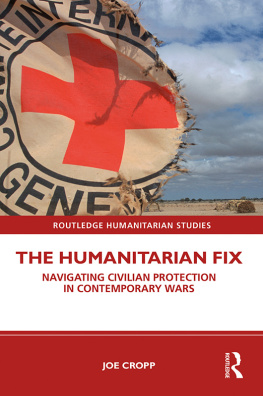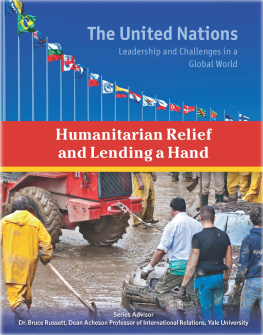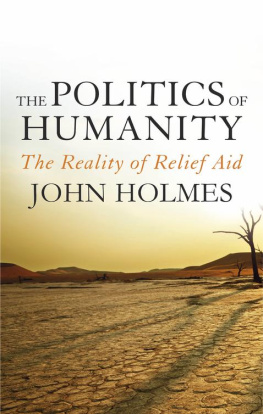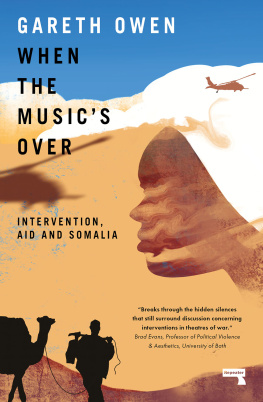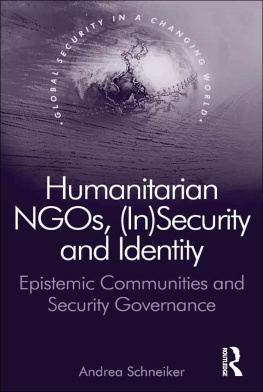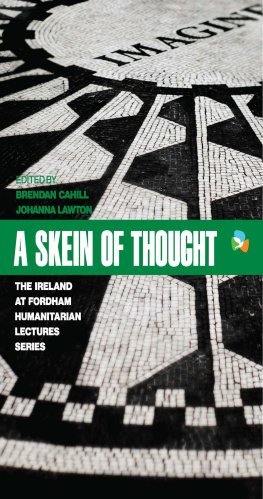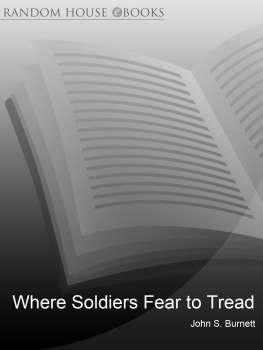Acknowledgments
This book would never have been possible without the time and thoughtfulness of my interlocutorsthe aid workers, policy makers, and residents I have gotten to know throughout Ethiopia over the last eighteen years. The writing of this book and research travel to Ethiopia were funded and made possible by support from the National Science Foundation, the Wenner Gren Foundation for Anthropological Research, the Faculty Research Support Grant mechanism at American University, and the School of International Service at American University. Jigjiga University and Addis Ababa University in Ethiopia ensured my research continued safely.
I benefited from the engagement of scholars during what is lovingly called a book incubator hosted by the School of International Service at American University. I invited a set of brilliant, generous, and critical people from across different disciplines: Betsey Brada, Daniel Esser, Dorothy Hodgson, Emily Mendenhall, Susan Shepler, and Lahra Smith. Michael Barnett and Susanna Campbell were also kind enough to listen patiently as I struggled with some of the major ideas presented here and generously read and responded to early drafts.
Two groups of faculty at American University provided forums where I worked out some of my early ideas: the Ethnographies of Empire research cluster and writing group at the School of International Service led at different times by Malini Ranganathan, Garrett Grady-Lovelace, Jordana Matlon, Anthony Fontes, and Marcelo Bohrt, and the anthropology department, at the invitation of David Vine. I benefited from discussions at the informal Humanitarian Salon, hosted by Refugees International in Washington, DC, led by Eric Schwartz, Elizabeth Ferris, and Michael Barnett. Several of the ethical dilemmas I examine in this book were topics debated among collections of practitioners, leaders, and scholars there.
Several individuals nourished me during my research and writingmany spoke with me at length about the dilemmas this book addresses, read and responded to passages, corrected my Somali grammar, and generally encouraged the project: Bukhari Sheik Aden, Nimco Ahmed, Mohammed Jama Ateye, Farah Mussa Hosh, Awli Mohammed, Ahmed Nassir, and Brook Tadesse. Several international aid agencies allowed me to shadow providers, interview staff members, and attend workshops, meetings, and conferences in Ethiopia: UNICEF, the UN World Food Program, the UN World Health Organization, the UN International Organization for Migration, UN High Commission for Refugees, the Norwegian Refugee Council, Save the Children, Oxfam, Mdecins Sans Frontires, Handicap International, Catholic Relief Services, the Hararge Catholic Secretariat, Samaritans Purse, and the Ethiopian governmental office of the Somali Regional Health Bureau. Additional local and district-level governmental bureaus and clinical facilities generously allowed me to conduct research with their staff and in remote areas even sleep within their compounds.
Several academic advisers and colleagues over the years have helped me think about humanitarian ethics, praxis, policies, and problems: Alex de Waal, John Hammock, Sue Lautze, Angela Raven-Roberts, Peter Walker, Patrick Webb, Helen Young, and others at the Feinstein International Center at Tufts University; Jennifer Leaning, Annie Sparrow, Andrew Cavey, Danya Qato, and others in the Harvard Humanitarian Initiative based at Harvard Universitys T. H. Chan School of Public Health; Joo Biehl at Princeton Universitys Center for Health and Wellbeing; Mark Nichter, Cheryl Ritenbaugh, Ivy Pike, Laura Briggs, and Linda Green at the School of Anthropology and Department of Family and Community Medicine at the University of Arizona; Billy Hamilton at Wake Forest University; and Bjorn Ljundqvist at UNICEF.
The last stages of writing and editing this book happened during the COVID-19 pandemic, when both of my children were quarantined at home. My mother, Deb Carruth, spent many afternoons on the couch reading, fixing hair, and patiently discussing Star Wars and Minecraft, and my mother-in-law, Phyllis Machledt, spent many hours reading aloud through screens so I could have time to work. Winslow Machledt provided feedback on the stories contained here and encouraged my frequent returns to Jigjiga and Dire Dawa, Ethiopiahis favorite cities, where in the summer months large packs of boys can freely play soccer for hours. Juna Machledt won the hearts of everyone she met during my fieldwork stints, and she tried almost every dish she was served. I have never loved Ethiopia more than when its people opened their hearts and kitchens to my children, and for that, I will be eternally grateful. Finally, my gratitude and unending love go to David Machledt, for his company, critiques, and unwavering support.
Abbreviations
ALNAP Active Learning Network for Accountability and Performance in Humanitarian Action
ARRA Agency for Refugee and Returnee Affairs (within the government of Ethiopia)
AWD acute watery diarrhea
DPPC Disaster Preparedness and Prevention Commission (within the government of Ethiopia)
DSM-V Diagnostic and Statistical Manual of Mental Disorders. 5th ed. Arlington, VA: American Psychiatric Association, 2013.
EPRDF Ethiopian Peoples Revolutionary Democratic Front
ICRC International Committee of the Red Cross
IDP internally displaced person
INGO international nongovernmental organization
IOM United Nations International Organization for Migration
HAP Humanitarian Accountability Partnership
HEW health extension worker
IRIN Integrated Regional Information Networks (now called The New Humanitarian)
MSF Mdecins Sans Frontires
NGO nongovernmental organization
NRC Norwegian Refugee Council
ONLF Ogaden National Liberation Front
SPDP Somali Peoples Democratic Party
STI sexually transmitted infection
TB tuberculosis
TPLF Tigray Peoples Liberation Front
UN United Nations
UNHCR United Nations High Commission for Refugees
UNICEF United Nations Childrens Fund
UNOCHA United Nations Office for the Coordination of Humanitarian Affairs
UNRISD United Nations Research Institute for Social Development
USAID United States Agency for International Development
UTI urinary tract infection
WFP United Nations World Food Program
WHO United Nations World Health Organization
Note on Transliteration and Somali Language Pronunciation
This book uses several words in the Somali language, and consonants and vowels written in Somali are often pronounced differently than they are in American or British English. There are additional differences in dialect, pronunciation, and spelling preference and practice among Somalis living in Africa and around the world. For example, some of my interlocutors who grew up and lived in Jigjiga in the Somali Region of Ethiopia used different spellings and pronunciations of words than persons living and working in the rural districts north of Jigjiga, in Dire Dawa, and close to the borders with Somaliland and Djibouti. I have done the best I can to spell and describe the words people used, as variable as they are.
Consonant sounds in Somali:
q A voiced uvular plosive made by pronouncing a hard k sound in the back of the throat.
x Pronounced like an English h as in help but more from the back of the throat. This is called a voiceless pharyngeal fricative. For example the Arabic word for the hajj is spelled


